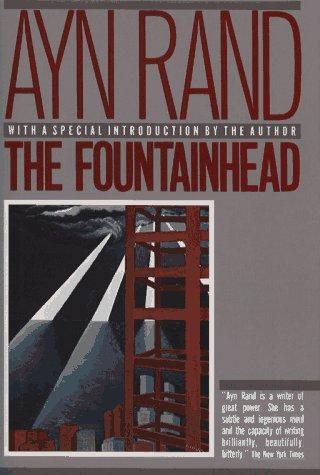Bithive reviewed The Fountainhead by Ayn Rand
I wanted to dislike it, but it changed my views
5 stars
Ayn Rand's "The Fountainhead" is undeniably one of her most influential works. It is a novel that demands attention - and often, introspection - from its readers. Ayn Rand, known for her philosophy of Objectivism, has been a controversial figure, and upon first approaching this book, I expected my disagreements with her philosophy to color my reading experience. However, I was pleasantly surprised.
Despite being a significant read length-wise, "The Fountainhead" presents a compelling case for Rand's philosophy, embodied in the determined, individualistic character of the protagonist, architect Howard Roark. Rand's commitment to her philosophical standpoint, reflecting in the complex themes and characters in her novel, is undeniable.
The narrative of the novel certainly has its drawbacks. From a modern perspective, the moral framework might seem quite antiquated; the characters often resemble archetypal heroes and villains, unyielding in their respective narratives. However, this stubborn extremity, almost Shakespearean in …
Ayn Rand's "The Fountainhead" is undeniably one of her most influential works. It is a novel that demands attention - and often, introspection - from its readers. Ayn Rand, known for her philosophy of Objectivism, has been a controversial figure, and upon first approaching this book, I expected my disagreements with her philosophy to color my reading experience. However, I was pleasantly surprised.
Despite being a significant read length-wise, "The Fountainhead" presents a compelling case for Rand's philosophy, embodied in the determined, individualistic character of the protagonist, architect Howard Roark. Rand's commitment to her philosophical standpoint, reflecting in the complex themes and characters in her novel, is undeniable.
The narrative of the novel certainly has its drawbacks. From a modern perspective, the moral framework might seem quite antiquated; the characters often resemble archetypal heroes and villains, unyielding in their respective narratives. However, this stubborn extremity, almost Shakespearean in its magnitude, becomes the core strength of this novel. The characters, reminiscent of the intense oversized figures seen from Warhammer 40K stories, contribute to the intrigue and dramatic tension of the narrative.
Roark's court speech is one of the most memorable and powerful segments of the novel - a veritable climax showcasing Rand's firm belief in individualism. The charm of this monologue cannot be overstated - it stands as a monument to Rand's philosophical thought, a final display of defiance. If one were to read just one part of this novel as a means of getting a taste of Rand's work, this speech would be it.
"The Fountainhead," despite its flaws and philosophical underpinnings that some might find challenging, is an unexpected delight. It's an exploration of an unwavering commitment to one's ideals, no matter the pressure to conform - which, regardless of our personal beliefs, is a thought worth reflecting upon.

